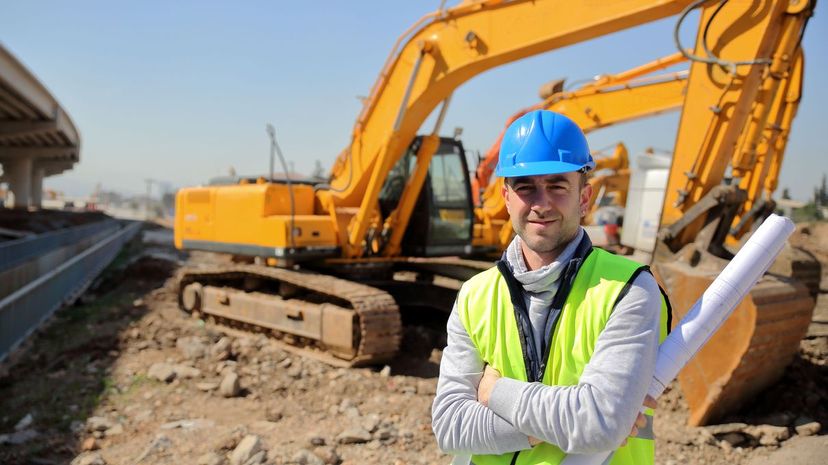
About This Quiz
Do you find yourself stopping to watch any time you pass by a major construction site, imagining yourself operating that tower crane, or sitting in the cab of that bulldozer? Sure, all that equipment looks cool from a distance, but do you known what each of these machines actually does? If you consider yourself a construction site expert, you might have what it takes to ace this quiz.
It wasn't all that long ago that all it took to build a house or store was a stock of lumber, some basic hand tools and a few strong backs. While it's certainly possible to build things the old-fashioned way, there are plenty of good reasons why the amount of equipment on the average construction site has increased dramatically over the past century.Â
Not only is it much easier and faster to construct a building using modern equipment, but it's also a whole lot safer - assuming all that equipment is used properly, that is. Cranes, excavators and other machines let buildings soar to new heights and make it possible to clear heavy boulders, bore through mountains or dig through tough soil that would have once served as an impenetrable obstacle.Â
Now that you know why all this new construction equipment matters, do you think you can tell one machine from another? Take our quiz to find out.
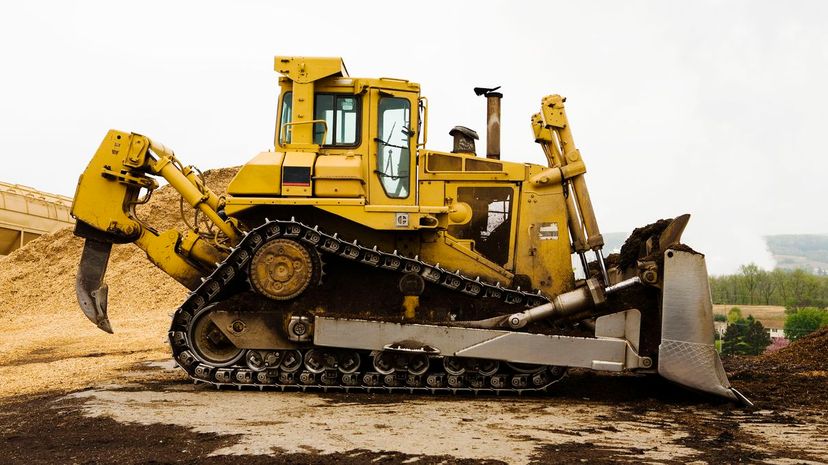
The first bulldozer model was developed in the 1920s, drawing on the tractor for inspiration in creating it. The bulldozer is typically used to move large amounts of material, like dirt or sand.
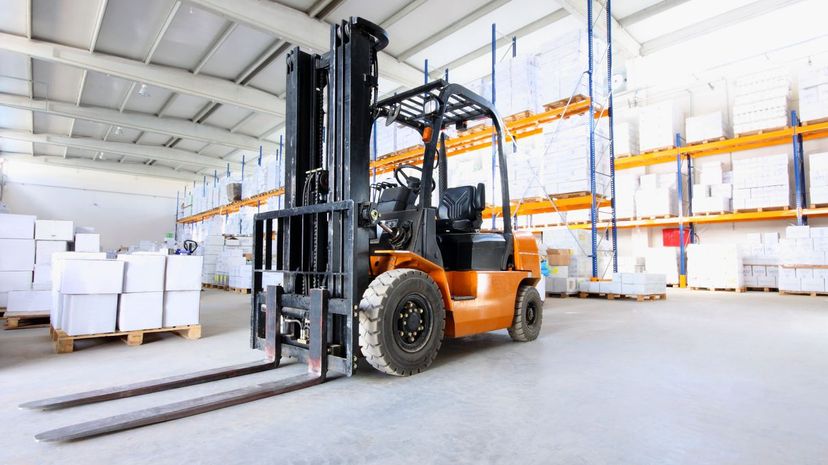
The forklift's roots can be traced to 1917 with the invention of the Tructractor, which was a simple truck used to move materials around. A few years later, the first hydraulic lift was added to select trucks. In 1923, the company, Yale, expanded upon the original designs by adding a fork-shaped lift capable of lifting heavy loads off the ground to above the height of the truck.
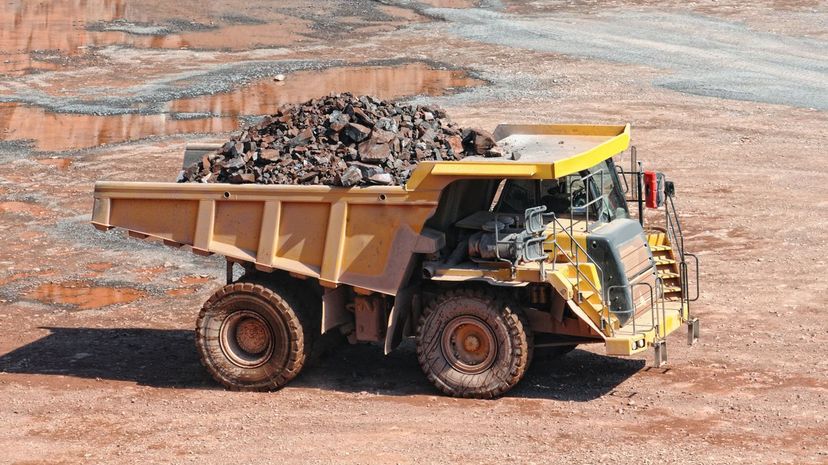
The Dumper is distinguishable by where its load skip is - on the front of the vehicle - and the cab (driver's area) is behind it. Whereas a dump truck has its cab up front and the load skip behind.
Advertisement
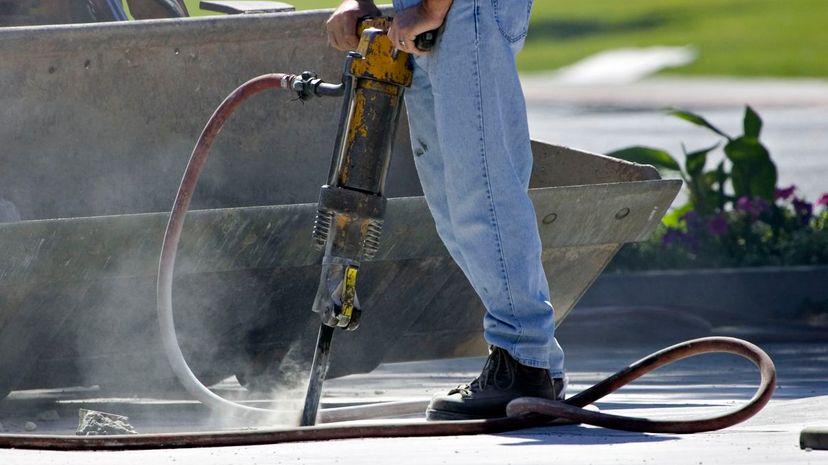
A jackhammer is the mechanized combination of a chisel and a hammer. This heavy (up to 100 pounds) piece of machinery is used to break up hard materials, like rock or concrete. The jackhammer is considered a pneumatic device, which means it operates using pressurized (compressed) air or gas.
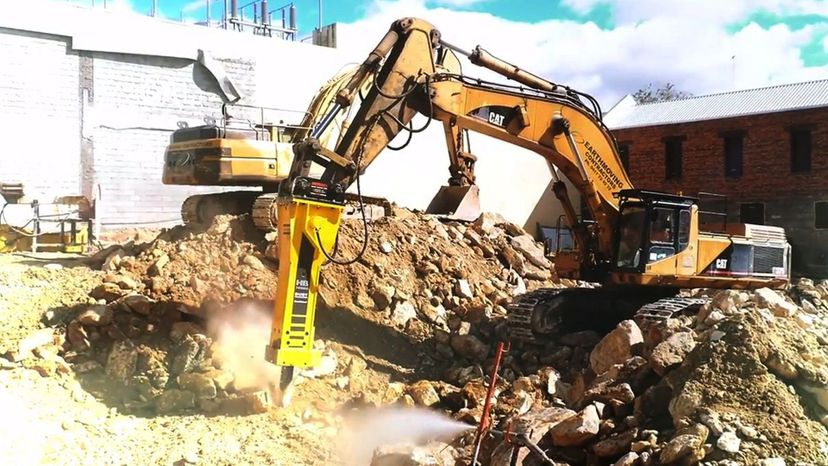
Rocks that are too big to be broken up by a smaller crusher machine are put through machines known as rock breakers. This piece of construction equipment is most often used by miners.
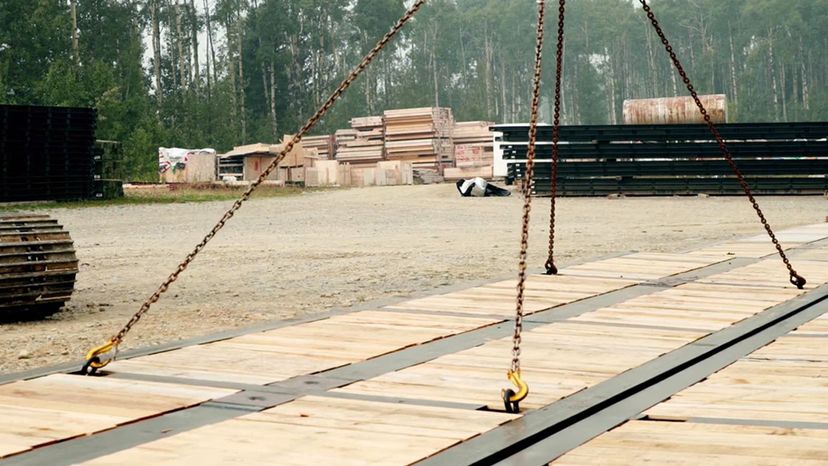
Rig mats are most frequently used in oil fields under drilling rigs, other heavy equipment, and for walkways. The lightweight durability of the rig mat allows it to be used on flat, rocky, and unstable ground.
Advertisement
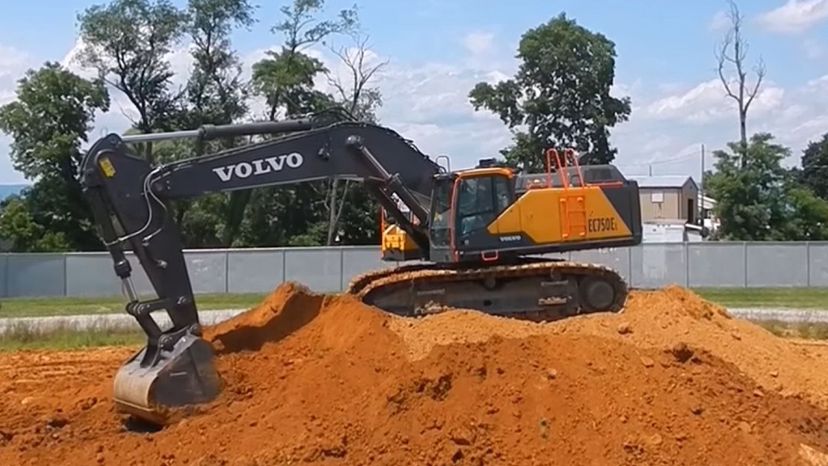
With roots dating back to the 19th century, excavators can be used for everything from home landscaping to large scale construction. Its main use is to dig or scoop out material. The first hydraulic excavators were used in the 20th century.
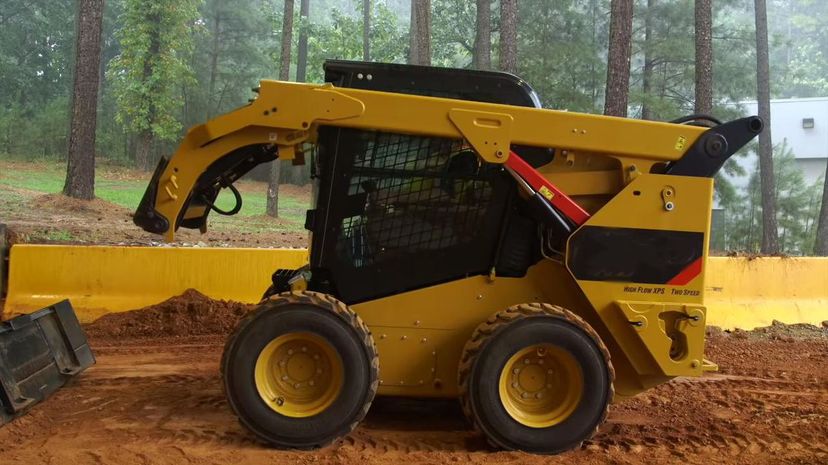
The skid-steer loader was invented in 1960 to answer a need for making physical labor both easier on laborers and more efficient. It gets its name from the way its wheels and steering system work. The loader turns by moving either the right side tires or left side tires while the wheels on the opposite side skid.
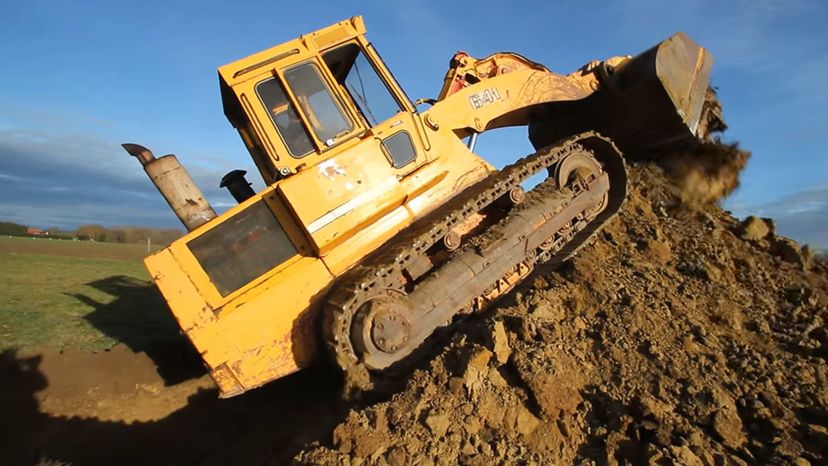
The first official Crawler Loader was invented in the '50s, but earlier, incomplete versions date back to 30 years earlier, in the '20s. The machine reached its peak popularity in the '60s, and has since been replaced by hydraulic excavators in most places.
Advertisement
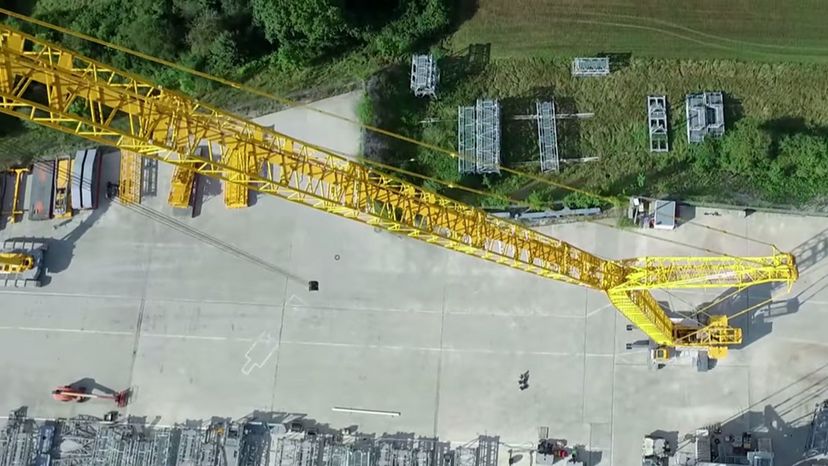
The Ancient Greeks are credited with inventing the first model of the crane, which was operated by human and animal strength, rather than by engines, motors, or hydraulic systems. The crane differs from a hoist in that it can move heavy materials both vertically and horizontally , whereas the hoist can only lift materials vertically.
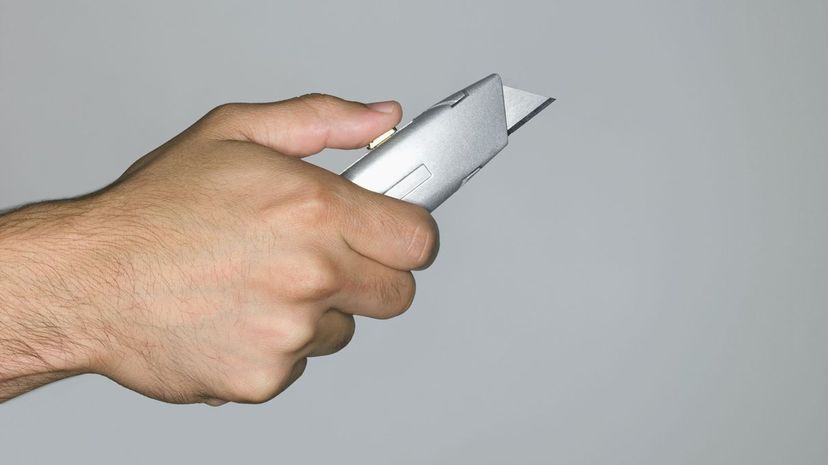
The utility knife is usually a fixed blade, which can be retracted into the handle for safe keeping when not in use. The blades of the modern utility knife are typically replaceable.
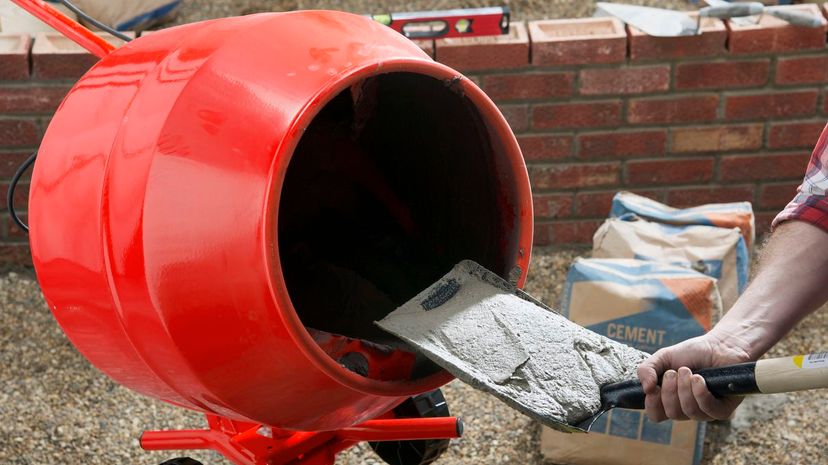
The first patent for a motorized cement mixer was granted in 1916. It used wooden paddles to stir the cement mixture, but could only do so when the cart wheels were physically moving, and it was super slow. The modern model of concrete mixers was introduced following WWII, during an industrial boom.
Advertisement

Prior to the invention of the hard hat, tar and leather were used to protect laborers' heads. The "hard-boiled hat" - made of glue, steamed canvas, and black paint - was patented in 1919. Starting in 1931, select projects, like the Hoover Dam, began requiring workers to wear hard hats as a safety precaution.
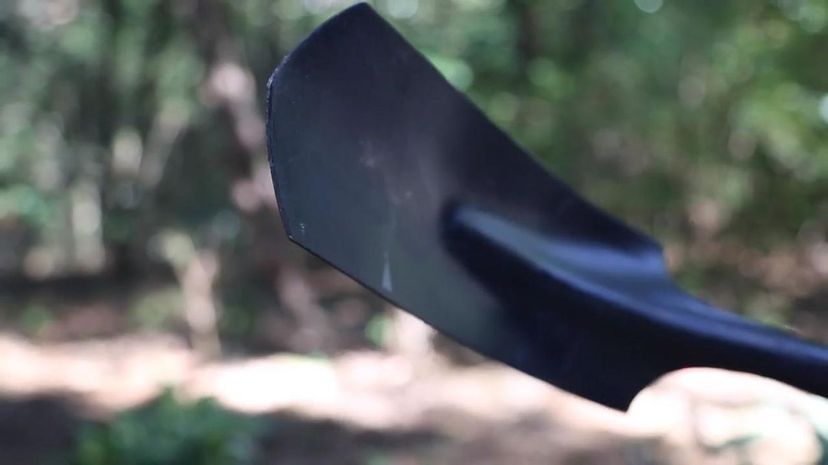
The military issues folding trench shovels, called a folding entrenchment tool, which are usually available for civilians to purchase at Army surplus stores and online. Trenching shovels were vital to soldiers' survival in WWI with the introduction of trench warfare, and were often used as weapons for close combat in the trenches, as the other weapons available were too long for the narrow quarters.
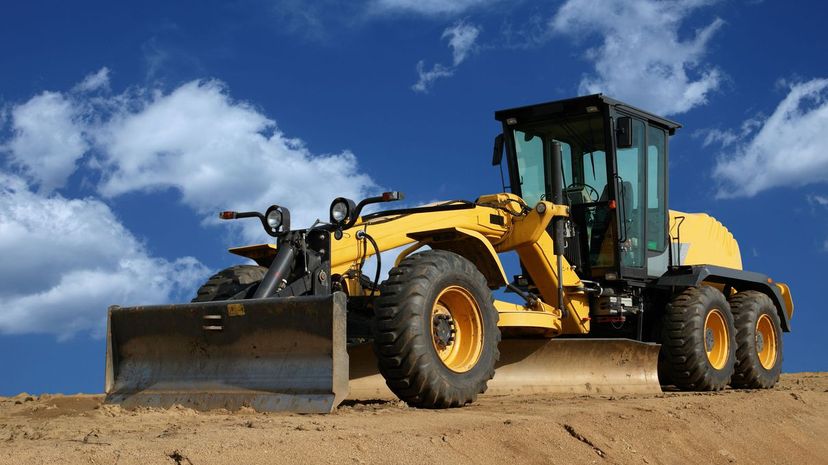
The grader also goes by the names: road grader and motor grader. It is a vehicle equipped with a large blade, used to cut into the earth to grade or level the ground to a flat surface according to a certain degree.
Advertisement
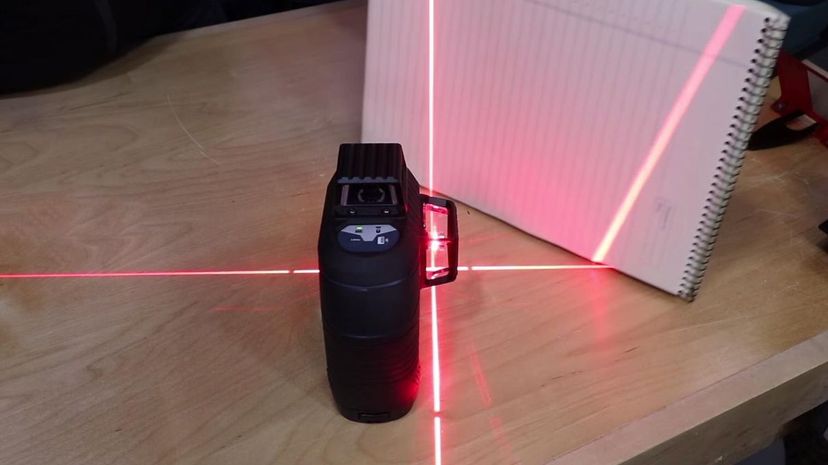
The model most commonly in use today was patented in the late 1990s, with an earlier model being patented in the late 1980s. The idea for a laser level has been around since the early 1970s.
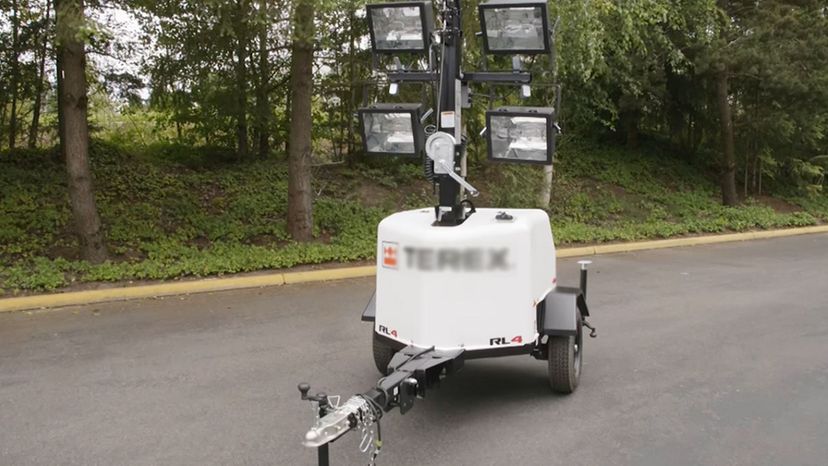
Light towers are used for construction, mining, demolition, emergency services, motion picture production, sporting events, oil refining, and agricultural needs. Some are powered by generators, others by electricity and solar power.
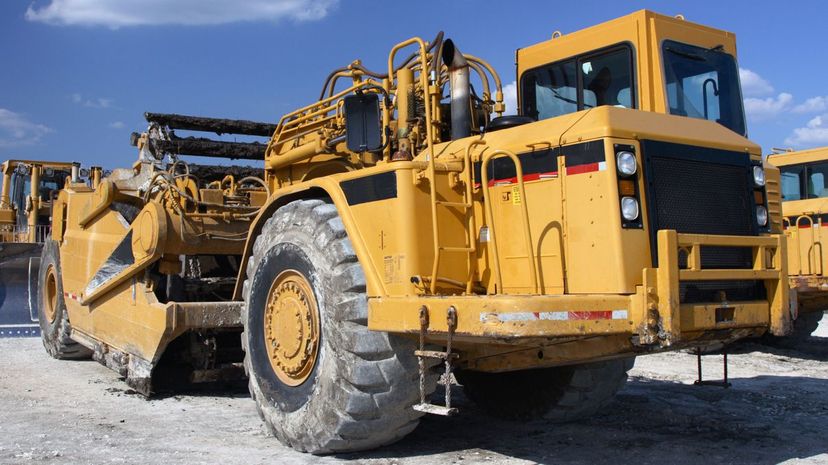
The paver can also be called: paver finisher, asphalt finisher, and paving machine. There is a specific paver for laying concrete, called the slipform paver, which smooths out pre-laid concrete using a screed.
Advertisement

The power trowel is also commonly referred to as a power float, helicopter, whirlybird, and trowel machine. It's a smaller, lighter piece of construction equipment used to polish concrete with a smooth finish. Power trowels can be ride-on or push-behind.
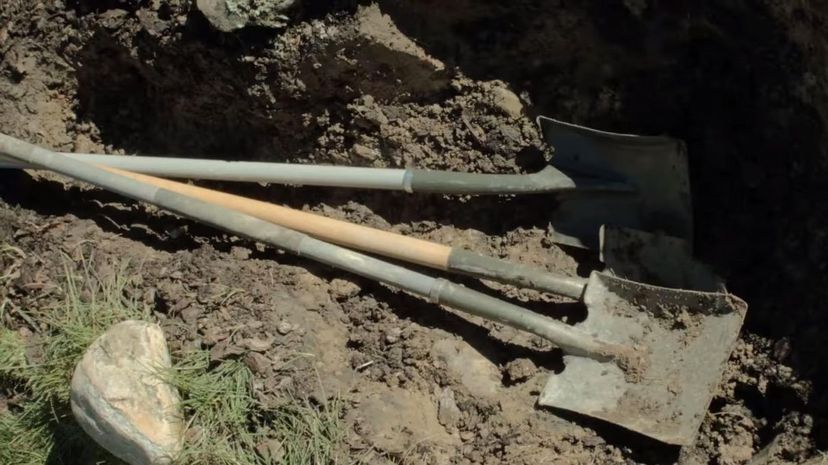
Square point shovels are usually used for transferring loose materials, not for digging, gardening, or trenching. Loose materials would be things like coal or stone. The square point shovel is considered a scooping shovel.
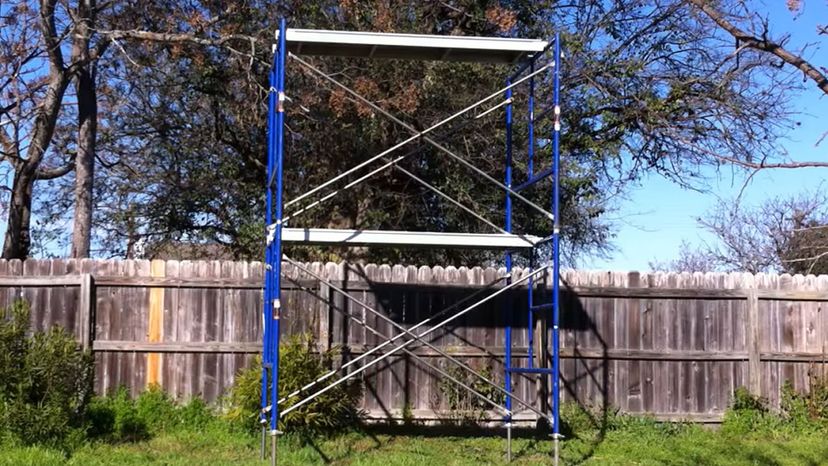
Daniel Palmer-Jones is considered the "grandfather" of scaffolding, having invented and patented in the early 1900s many of the parts still in use today. However, the history of scaffolding dates back much further than that, with evidence of scaffolding system over 17,000 years old from the Paleolithic era.
Advertisement
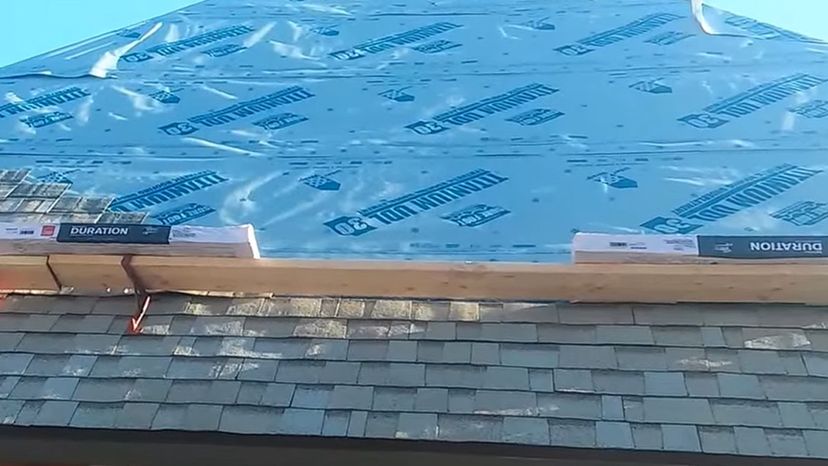
A toe board is usually a simple 2x4 nailed down horizontally across a roof so that laborers can use it as a safety precaution for walking across the roof. The plank of wood would stop laborers from falling off the roof if they were to lose their footing. This allows roofers to ditch their safety harnesses, which allows them to remain cool while moving freely.
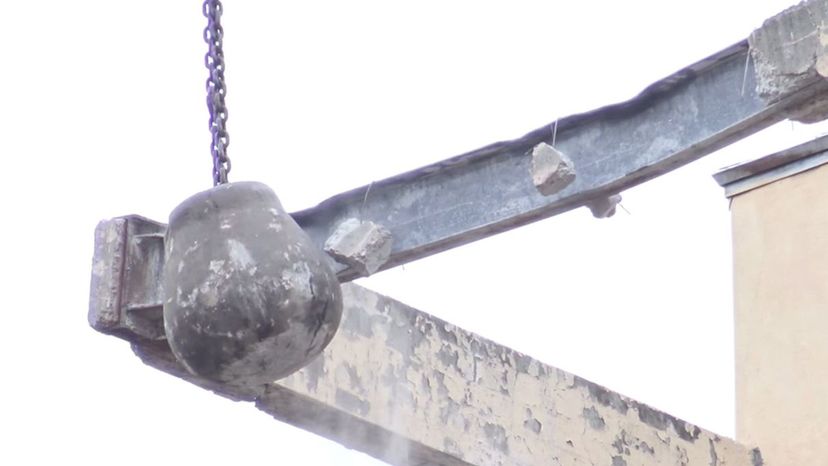
The wrecking ball was most commonly used in the '50s and '60s, but lost popularity with the rise of machinery like hydraulic excavators. Most recently, the machine made a comeback in Miley Cyrus's 2013 hit, "Wrecking Ball."
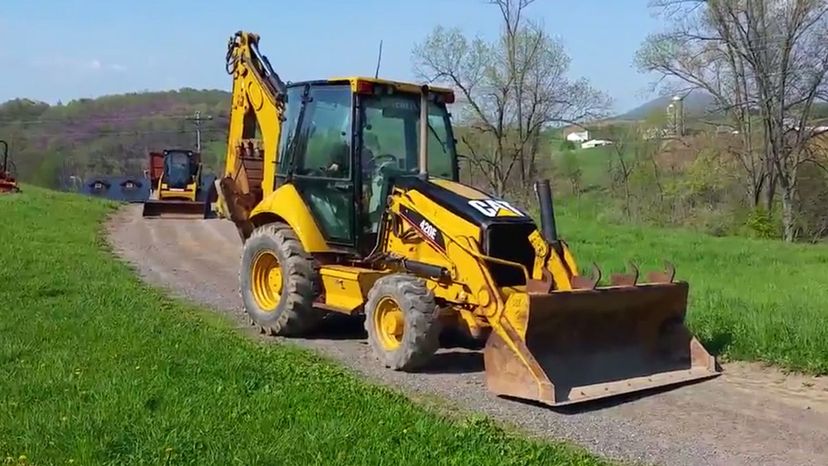
Backhoe loaders are smaller and more precise than other machinery serving similar purposes, which makes them most suitable for urban areas, where there is limited space available for construction activities. The first backhoe was produced by Wain-Roy Corporation in 1947, and the first hydraulic backhoe was sold in 1948.
Advertisement
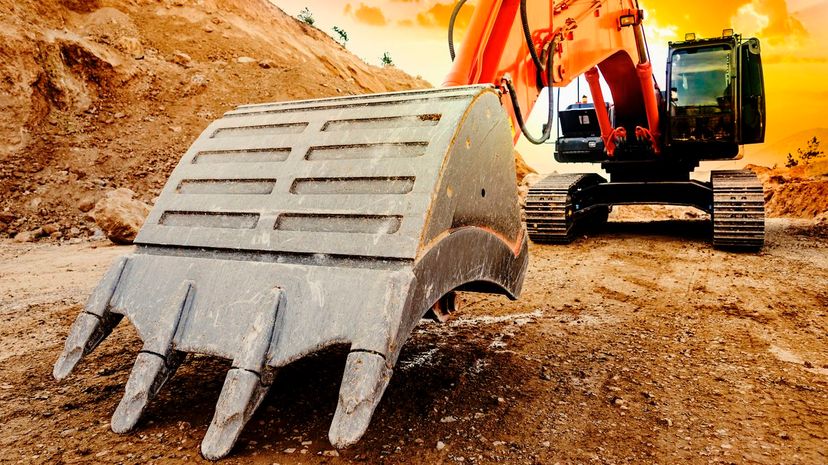
The very first model of the power shovel was made in 1955 and named Marion 5760. The machine is most commonly used in mining for excavation purposes.
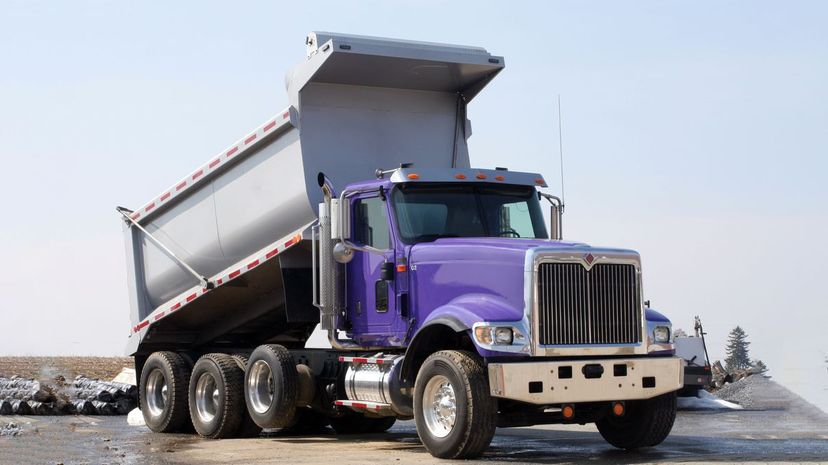
The hydraulic dump truck, the only model in use today, was introduced in the early 1900s by Wood Hoist Co. Small dump truck manufacturing companies grew exponentially during WWI due to increased wartime demand.
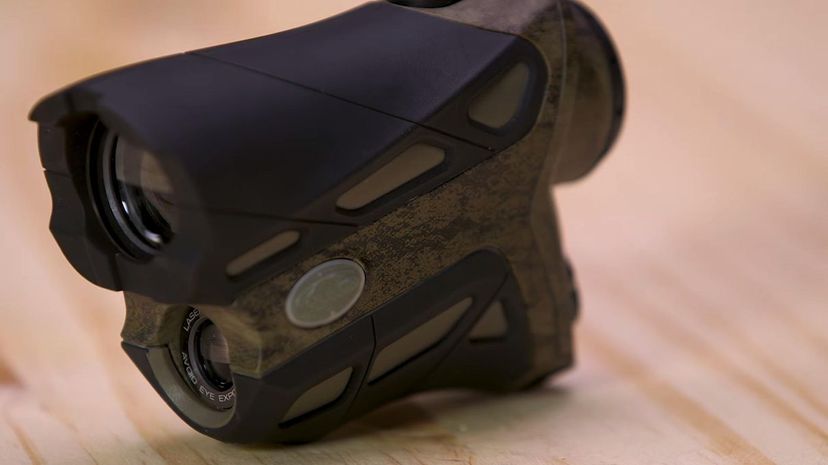
By recording the amount of time it takes the laser beam to make it from point A to point B, the laser rangefinder can measure distance, and it's reliably accurate within a few millimeters. It's used in construction, industrial production, forestry, 3-D modeling, and military operations.
Advertisement
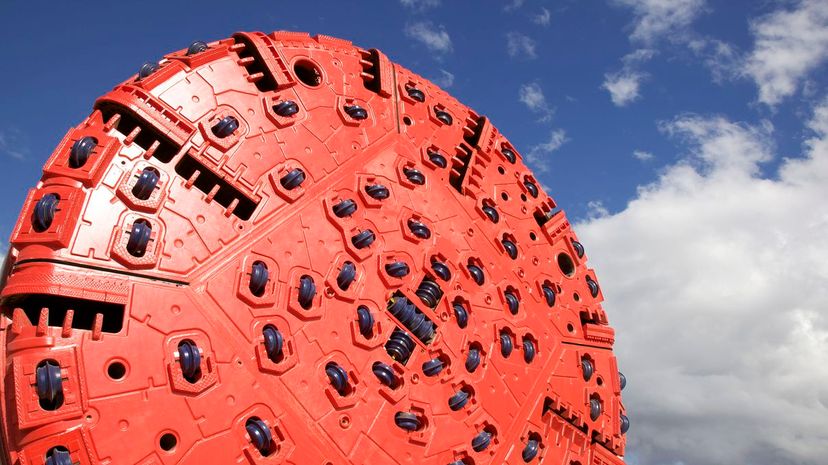
The modern-day Tunnel Boring Machine can power through pretty much anything, including rock. The first TBM was built in 1845, commissioned to dig the Frejus Rail Tunnel in Europe.
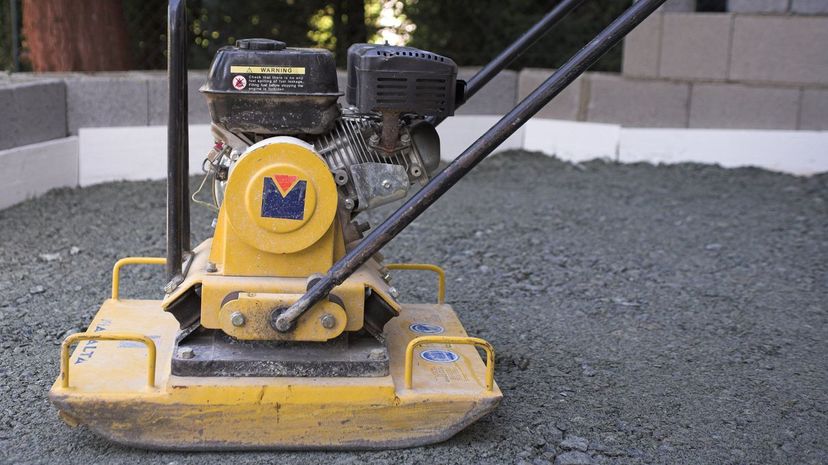
Prior to the 19th century, horse-powered rollers were used as compactors. In the mid-19th century, self-propelled steam rollers were invented and largely replaced the old horse and roller method. Modern small plate compactors are used to compress small areas of soil and ground.
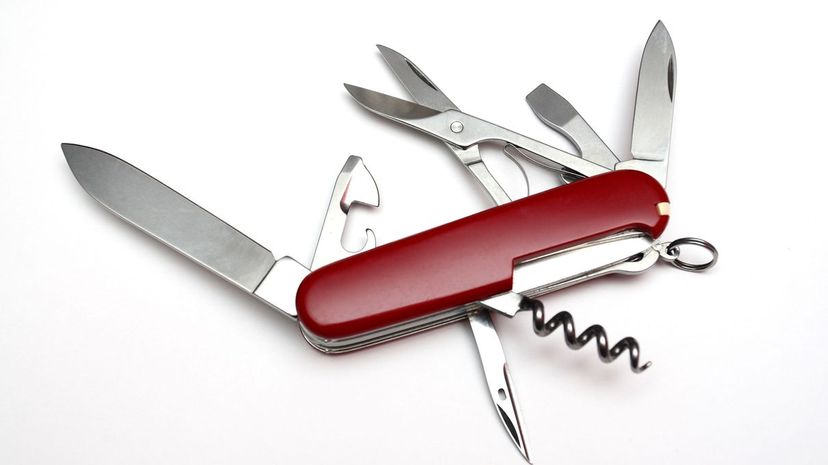
The jack knife is also known as a pocket knife, since most are small enough to fit in pants' pockets. The oldest jack knife found is believed to have been made around 600-500 BC.
Advertisement
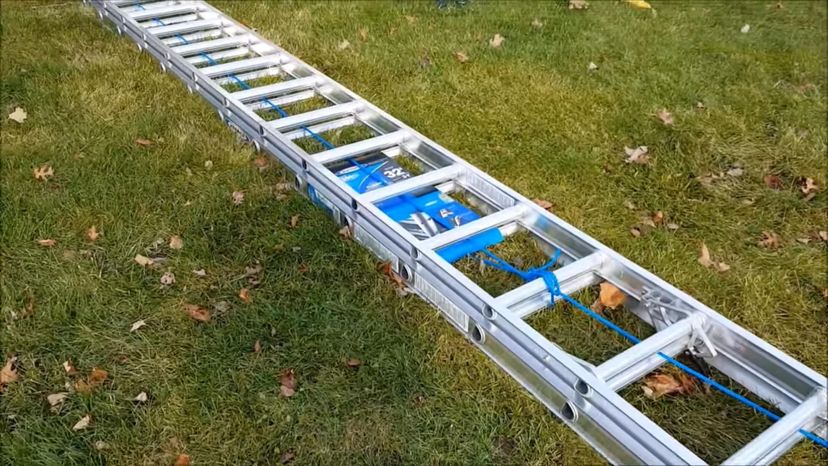
The first recorded societal use of ladders is by the ancient Egyptians and Hebrews. Extension ladders are useful for construction purposes, but not so much for use around the average-sized household. When it comes to daily needs, step-ladders are much more popular, since they're self-supporting.
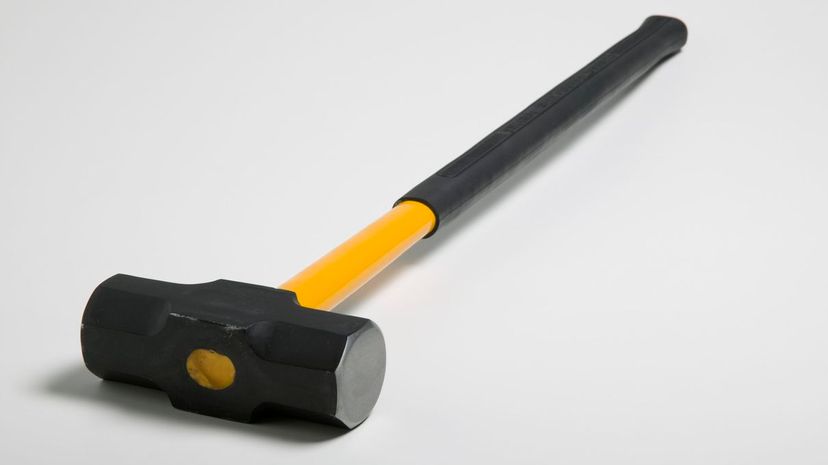
Sledgehammers are used to break up hard materials in construction, and they are also a weapon of choice for many thieves looking to break into homes.
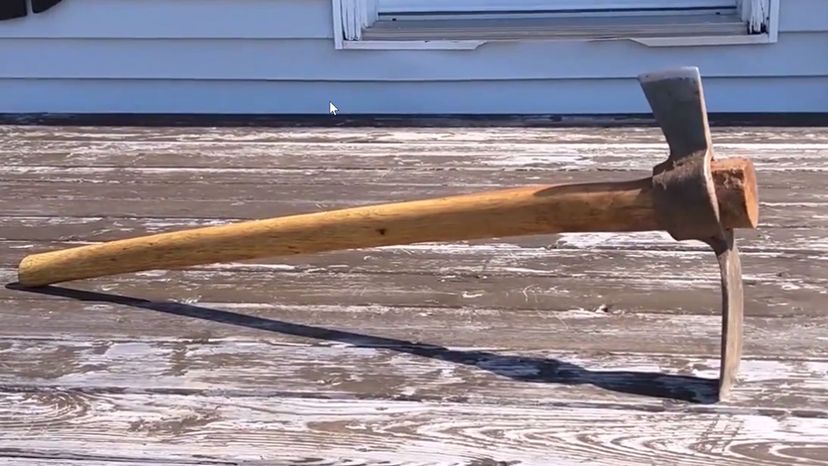
The Mattock is similar to the pickax, but differs in the direction in which the ax cuts. Its design makes it most suitable for use in landscaping, where it is used to break up the ground.
Advertisement

The crowbar has quite a few other names, including: Jimmy, Jimmy bar, gooseneck, pry bar, and wrecking bar. A crowbar is usually referred to as a Jimmy when it's being used in a robbery. The tool comes in a variety of shapes, including: cylindrical, hexagonal, oval, and I-beam.
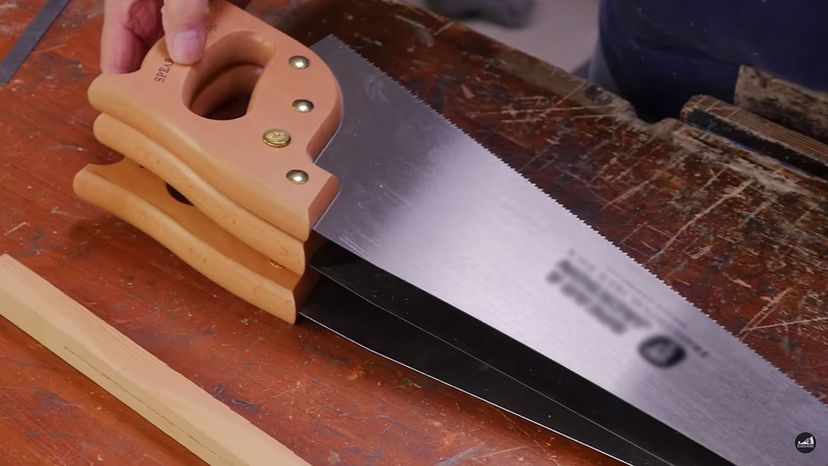
The handsaw can be either "push-cut" or "pull-cut," but there's no consensus on which method is more efficient. Handsaws are often used when cutting wood. In some countries, handsawing is an actual sport.
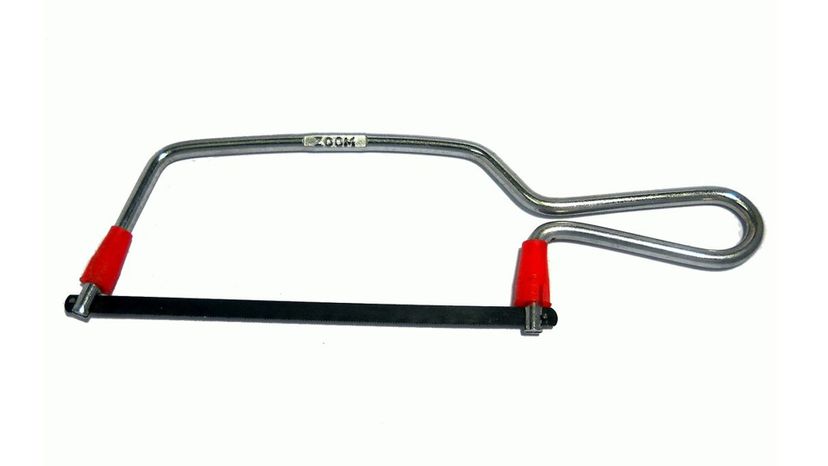
The hacksaw's main use is severing plastic or metal pipes. The hacksaw was modified in the 1880s with some major improvements to the sizing and teeth of the blades.
Advertisement
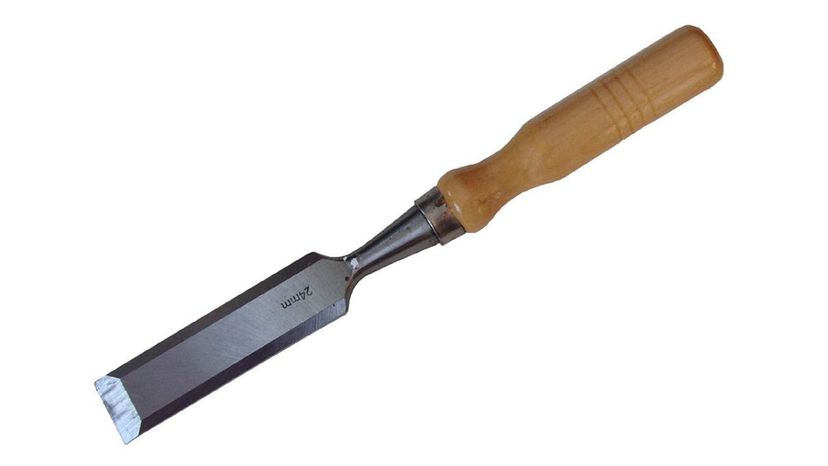
The chisel is most commonly used in working with metal, wood, and stone. There are specific techniques to using the chisel, and it's not an easy craft to master.

The pickax is believed to be one of the oldest tools, with roots dating back to prehistoric times. Not only used as a tool, the pickax also served as a weapon in the middle ages and again, much later, during trench warfare in WWI.
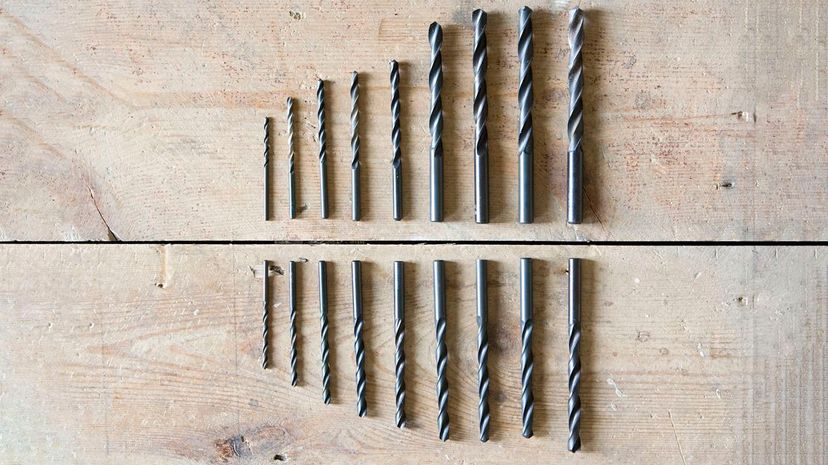
Humans switched from using wood and bone to craft bits to metal in the 13th century. Tools which served similar purposes (extensions/attachments) can be traced back to prehistoric times.
Advertisement
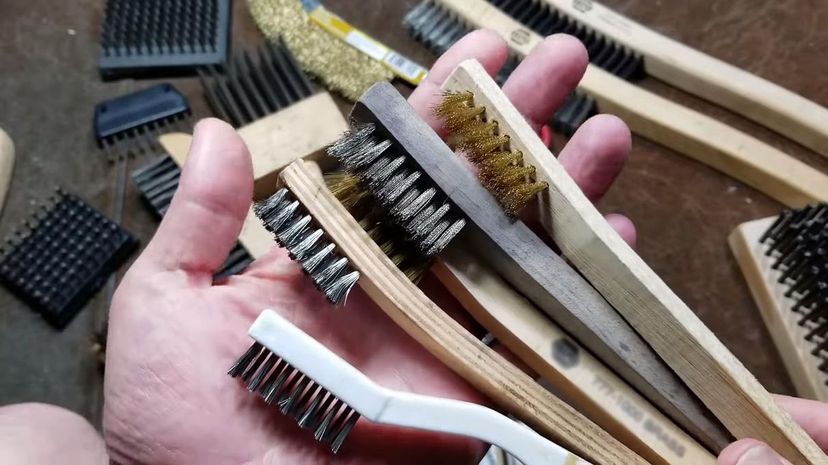
In addition to their uses in construction, wire brushes are also used to clean the teeth of large animals, like crocodiles. They are usually made of steel wire.
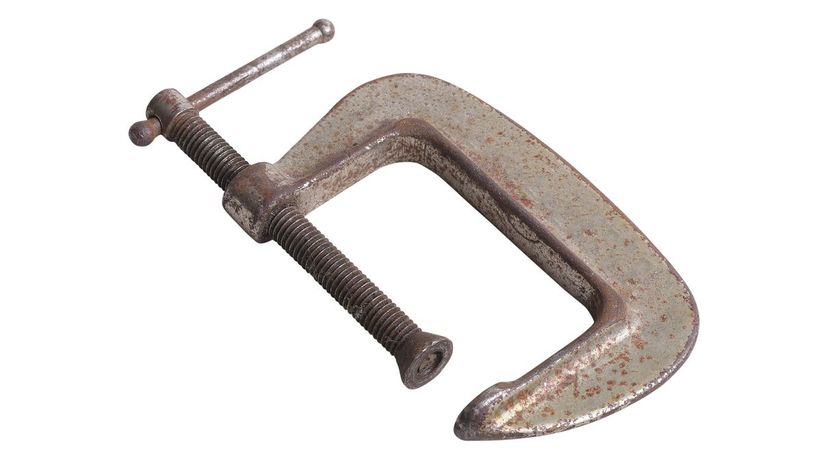
Clamps are just as important today as they were in ancient Egypt, where one of their uses was to hold tombs shut while the "glue" was setting. Clamps first appeared in ancient Egyptian illustrations. Today, G or C-clamps are most popular with woodworkers and hobbyists.
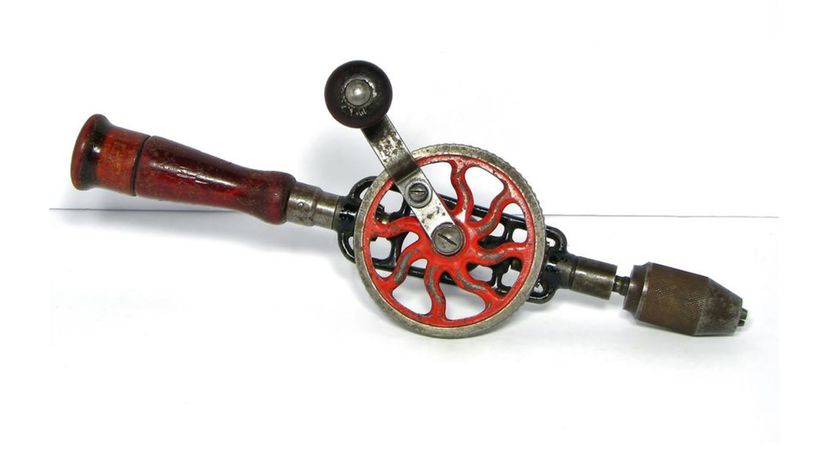
Shortly after the invention of the electric motor, in 1889, the electric drill followed, and has remained the more popular option when it comes to hand tools. Drills, like many tools, date back to ancient times, when they were made of stones, cords, and sticks.
Advertisement
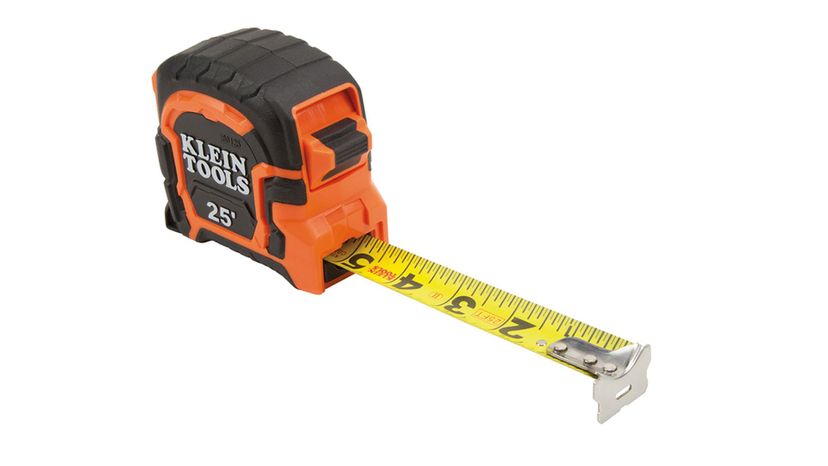
The first spring-loaded measuring tape was patented in 1868 in the U.S. The first recorded use of a standardized ruler was by the ancient Romans in 29 BC. At the time, it was called a measuring rod.
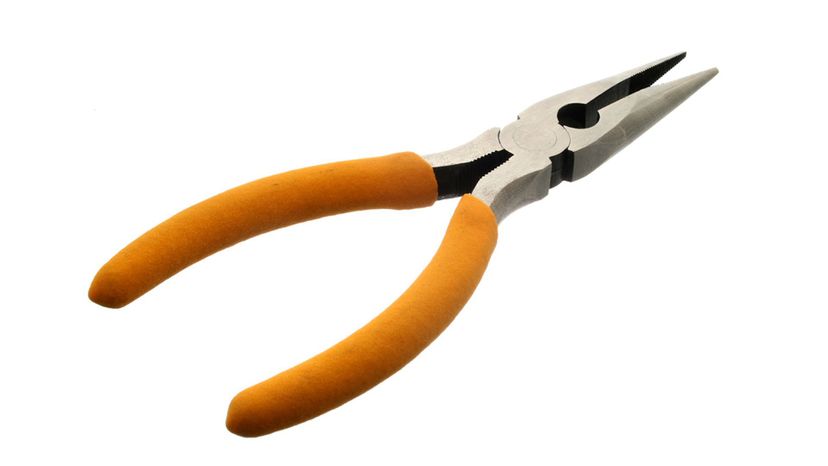
Needle-nose pliers allow users to cut wire, a unique feature of this type of pliers. The origins of the pliers is unknown, as many civilizations throughout human history have used a version of them, but it is known that they are an ancient invention, very ancient.
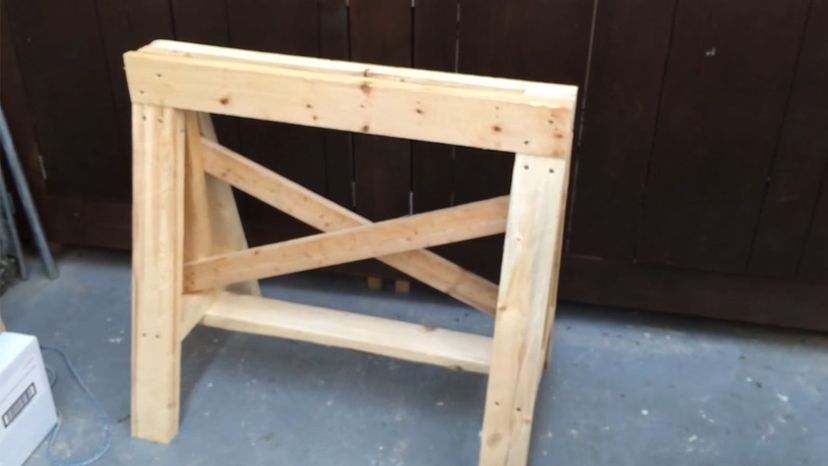
Today, sawhorses are constructed according to specific measurements, using highly accurate machinery. In the 1800s, this was not the case - halved logs were used as the sawhorse base, usually not exactly level with one another. In addition to their important role in construction, sawhorses are also used by law enforcement as barricades.
Advertisement
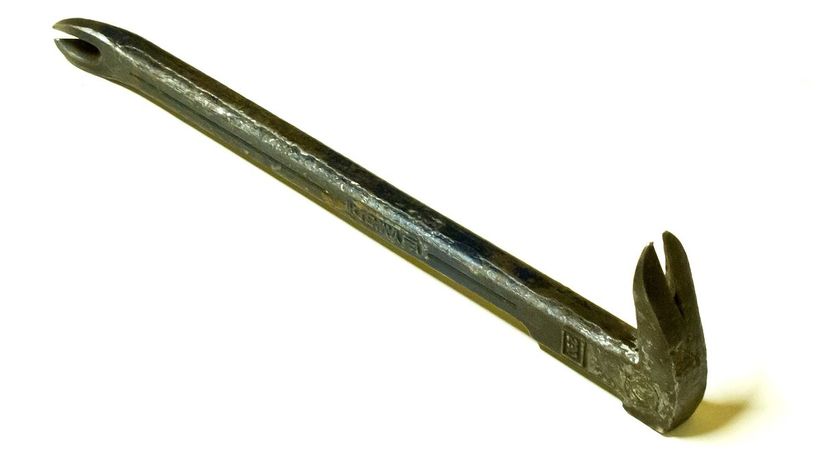
When nails used to be handmade (more than 100 years ago), nail pullers were intentionally hand-crafted so that the nail would not be damaged in the process of being pulled. Now, it's all about getting the nail out as fast and efficiently as possible.
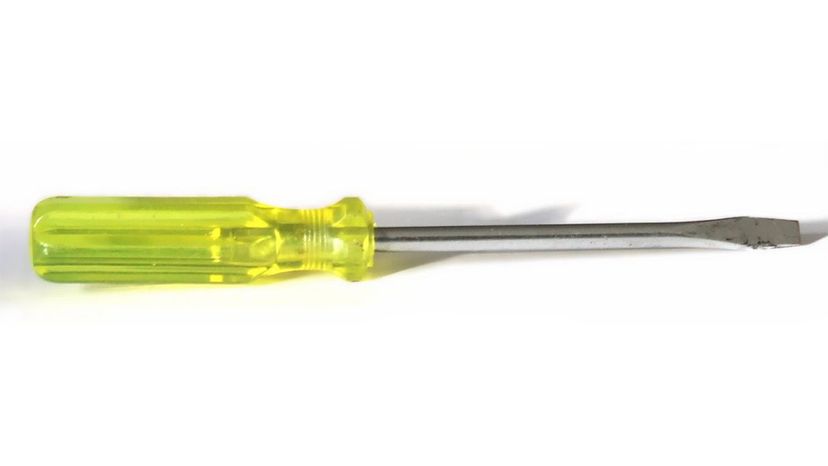
In addition to drilling and removing screws, the flathead screwdriver can be used to pry things open. The earliest recorded use of any version of a screwdriver dates back to late Middle Ages Europe.
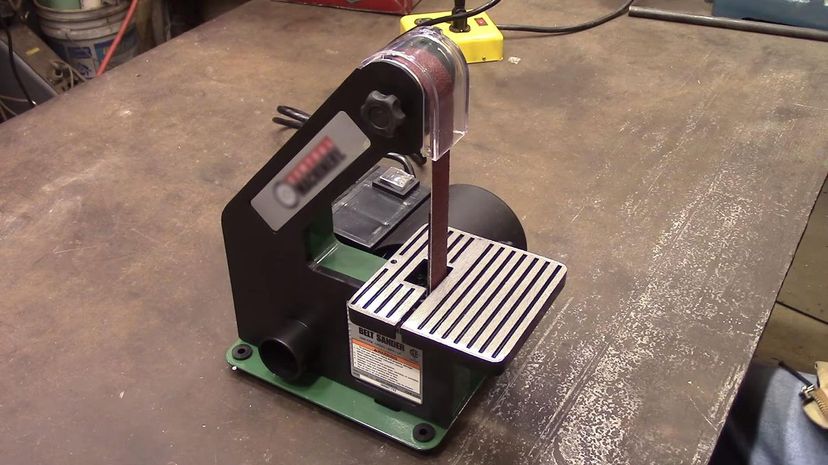
Belt sanders can be portable/mobile or stationary. Portable belt sanders are run over the surface or material needing to be sanded, while stationary sanders require users to run the material needing to be sanded over the sanding belt. This sander was not designed for precision, but for use at the beginning of a project when the material is still quite rough. The belt is too fast and aggressive to use for detailed sanding.
Advertisement
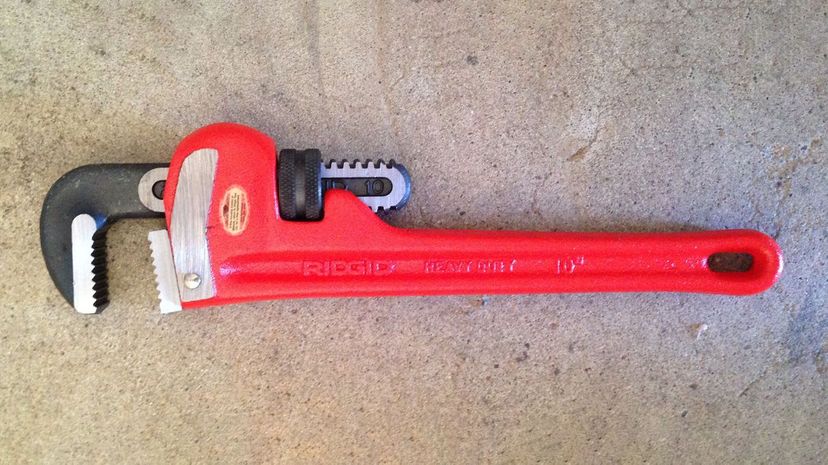
The pipe wrench is designed to fit and work with soft, rounded iron pipes. It's usually made of steel and comes in a variety of sizes. Daniel Stillson patented the pipe wrench in October of 1869.